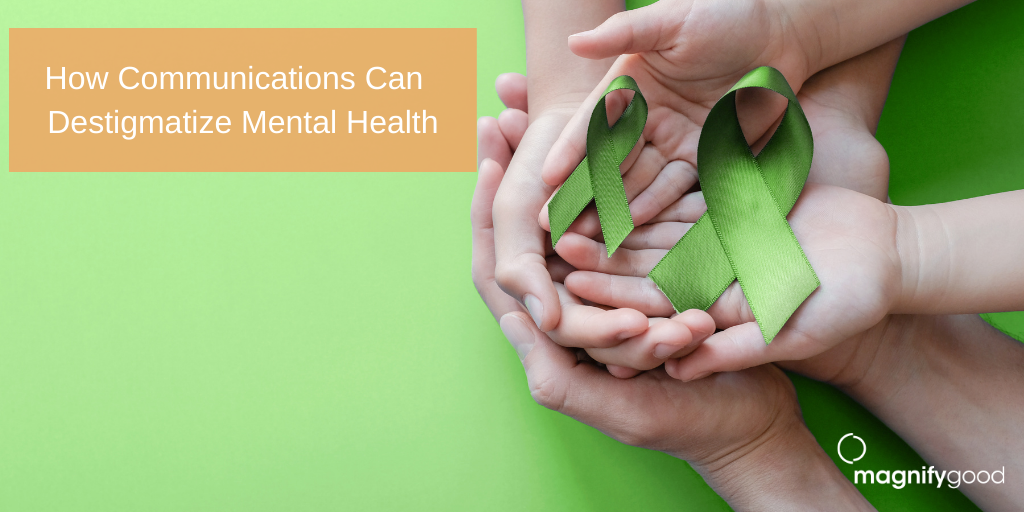During the height of the COVID-19 pandemic, hospitals throughout the world were inundated with patients suffering from the virus. With limited resources, excruciating decisions were made by families and healthcare workers. Patients were dying in isolation without saying goodbye to loved ones. The traumatic stress of this experience took an unfortunate toll on Dr. Lorna Breen, medical director of the emergency department at New York-Presbyterian Allen Hospital. In April of 2020, Breen, overwhelmed by experiencing so many people dying in front of her on a daily basis, tragically took her own life.
While the virus has claimed millions of lives, there are millions more who have experienced negative effects on their mental health due to the deaths of loved ones, isolation, unemployment and other factors. According to a study, 42% of American adults reported symptoms of anxiety or depression in December of 2020. That number was just at 11% the year prior.
The issue of mental health, unlike other diseases, has lived in the shadows of society tinged with shame and judgment. Unfortunately, many people suffer alone for fear of what others might think and say about them. It doesn’t have to be this way, and we know that through communications, we can destigmatize the conversation.
Spokespeople With A Platform
As the world watched the 2020 Olympic Games, millions were stunned when one of the most decorated gymnasts of all time, Simone Biles, withdrew from several competitions. When asked why she suddenly removed herself from competing on the world’s highest stage, the 7-time Olympic medalist said, “What I’ve been through, I’ve just always fought through it, and it’s just been really hard. So, we have to protect our mind and our body, rather than just go out there and do what the world wants us to do.”
Biles didn’t just talk about the importance of mental health in front of a few fans, she spoke to millions and millions of people through the reach and platform of the Olympics. This had a profound effect on people, as data shows that stories about her and mental health garnered more than 2 million social media interactions. Additionally, Google searches about mental health hit its highest level in two months. When those in the public spotlight bring up mental health, whether it’s Biles, Meghan Markle or Naomi Osaka, millions pay attention and people can realize they’re not alone. Organizations can get involved by connecting with people who have a platform and raise money for important mental health causes.
Keeping The Conversation Alive
A story, no matter how impactful or moving, only lasts until the newest sensational story appears in the headlines. To keep an issue top of mind, you have to be intentional with your communications and strategy.
Leading up to the 1970s, women and men diagnosed with breast cancer suffered in silence to avoid being shamed for their condition. For far too long, the cancer was considered “unspeakable.” The public attitude toward breast cancer started to slowly change as second wave feminism permeated the culture and activists spoke out.
While society gradually started to become more accepting of people battling breast cancer, there was still a long way to go to convincingly change public opinion. In 1993, The New York Times published an image of artist and activist Joanne Motichka posing with her right breast exposed after undergoing a mastectomy and chemotherapy for breast cancer. The powerful caption — “You Can’t Look Away Anymore” — blatantly confronted a society that didn’t understand the disease and questioned the men and women suffering from it.
As a result of that image and other intentional communications tactics, research and funding, the breast cancer awareness campaign is now prominent with many nonprofit organizations raising billions of dollars to find a cure. Every October, we wear pink clothes and buy pink ribbons from our favorite stores to raise money and support those in their battles. In 2021, a man or woman diagnosed with breast cancer isn’t shamed; they’re supported. It is easier to connect once the shame has been removed.
Changing The Future
It all starts with the immeasurable power of communications — this is what connects people to their sense of empathy, their fears and their emotions. Effective Communications raises awareness about an issue and increased awareness leads to growing support and fundraising. With more and more celebrities speaking out about the importance of mental health, they are spreading awareness along with acceptance and, consequently, action throughout the world with every interview and Tweet. Consistent and effective messaging raises awareness and catalyzes action that undoubtedly changes lives and the future of our society.
MagnifyGood is dedicated to creating communications strategies that will elevate your efforts in the community. If you’re curious about how you can improve your organization’s message or want to better connect with donors, schedule a quick call or email us today. We would value a conversation.



